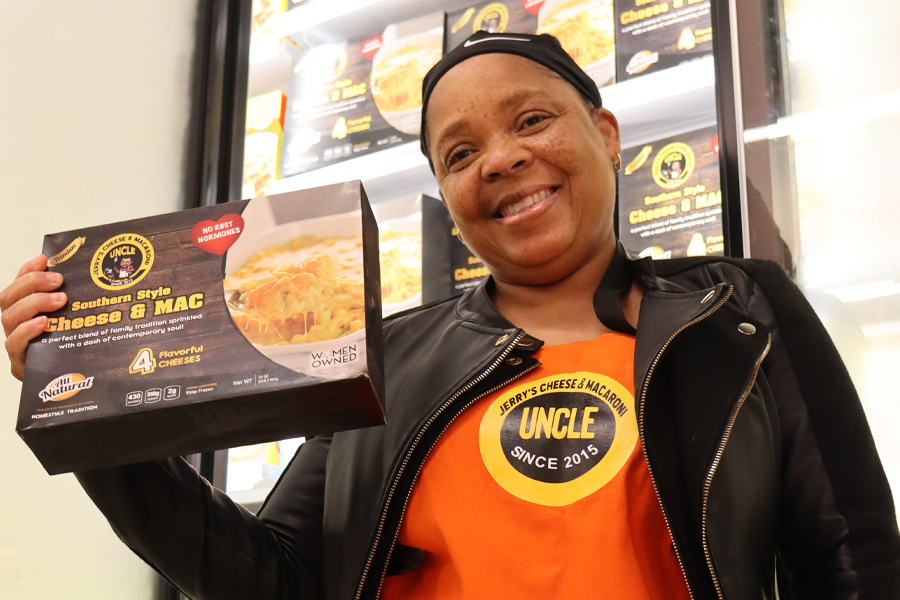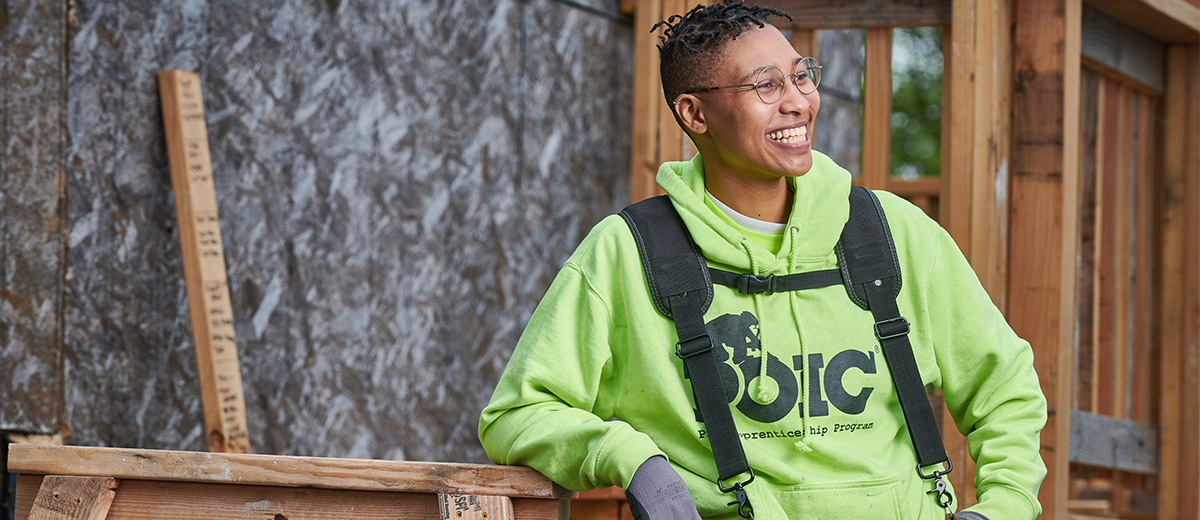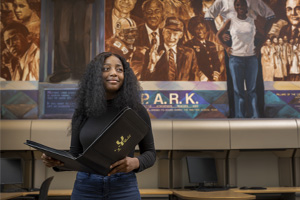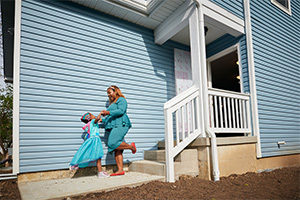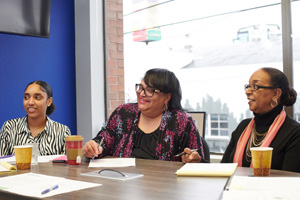When Marlyn Gonzalez founded Gem Coffee, she had more than just coffee in mind — her store gives members of her community a place to be together, even when language barriers can make them feel far apart.
Marlyn Gonzalez has two passions: coffee and community. She’s always been a coffee fan, but it wasn’t until Marlyn moved to City Heights that she fell in love with the power of connection a close-knit neighborhood can create.
Marlyn moved from Mexico to the United States sixteen years ago. For the last decade, she’s been living and working in City Heights, a densely populated neighborhood in eastern San Diego known for its cultural diversity. Right away, Marlyn fell in love with the neighborhood when she saw the way it brought people from different walks of life together. The diversity made her feel right at home.
As the years went by, Marlyn began to notice that many City Heights residents struggled with a language barrier. She was inspired to help bridge the gap between English and Spanish speakers, and she did it in the best way she knew how: sharing a cup of coffee. Gem Coffee first opened up as a mobile cart that served coffee at local farmers’ markets and street fairs. Marlyn steadily built her business, serving customers from all over the San Diego area. She kept at it until a cart wasn’t enough to meet the demand — it was time to open up shop. Marlyn got to work on Gem Coffee’s first brick-and-mortar storefront, located between the Talmadge and City Heights neighborhoods. Many of her customers would be coming from the nearby Talmadge-Gateway project, a supportive housing complex for seniors experiencing homelessness. Everything was going according to plan, until the pandemic hit.
In early March, Marlyn had just finished all the paperwork, purchased equipment and hired staff, when the grand opening she envisioned was put on hold due to COVID-19 closures. Marlyn was still excited about the new location, but was faced with a new slew of challenges. “I was somewhat prepared for the challenges of opening a business during COVID-19, but the whole thing was definitely out of left field,” she said. “It felt so strange because businesses around us were closing. There were a lot of emotions — exciting emotions, because we were ready to go, but at the same time there was fear and uncertainty about what was happening.”

As the summer and COVID-19 went on, there was no question about it — in order to stay afloat, Gem Coffee needed assistance. “We needed more money just to adapt to COVID-19,” Marlyn said. “PPE expenses were a big one. I ended up paying about 100 dollars for a 24-ounce sanitizer. Even locating those items was a challenge.” On top of jumping the hurdles of COVID-19 and small business ownership, Marlyn was still working another full-time job to make ends meet. So, when she heard from the City Heights Community Development Corporation that a grant was available, she jumped at the chance to apply. “We met the qualifications, and we were so lucky to be selected.”
That grant came from the Local Initiatives Support Corporation (LISC), an organization that strengthens underserved communities by connecting people to affordable housing, providing job coaching, and, during the pandemic, providing grant money to local businesses that need it most. Getting loans can involve a complicated application process, and some business owners aren’t in a position to take it on the daunting process alone. That’s where U.S. Bank and LISC come in. Together, these two organizations are granting aid to small businesses that inspire their communities during difficult times. “A lot of the businesses owners we support don’t have the time or resources to apply for traditional PPP loans or government grants,” said Avital Aboody, a LISC program officer. “As well as offering financial grants, we help business owners with applications, provide translators and offer business education that they might not otherwise get.”
Marlyn was one of the small business owners who received LISC’s grant — and it worked wonders for Gem Coffee. For the next few months, Marlyn was able to keep her staff on payroll, keep the shop open and continue to provide for her community. Remaining open didn’t just ensure that Marlyn’s customers would continue to have a convenient place to grab coffee, it also meant they’d have a place to go where they felt welcome — no matter what neighborhood they came from or what language they spoke “We’re in the middle of two communities, and we’re kind of like an anchor between them,” Marlyn said. “In the future, we want to work with other local businesses in the community to offer more food items, or items that they might need that they can’t get without driving a long distance.”
During COVID-19, small business owners have had to overcome a seemingly endless stream of adversities. Thanks to Marlyn’s hard work and a financial boost from LISC, Gem Coffee is still open for business. “Small businesses are such an important part of a neighborhood’s culture,” said Avital. “For many people, it’s not just a place to get things they want or need, it’s a gathering place where they form relationships and feel at home. Helping the businesses thrive helps community members thrive.”
Continue reading more stories about how small business owners navigated unprecedented times.
